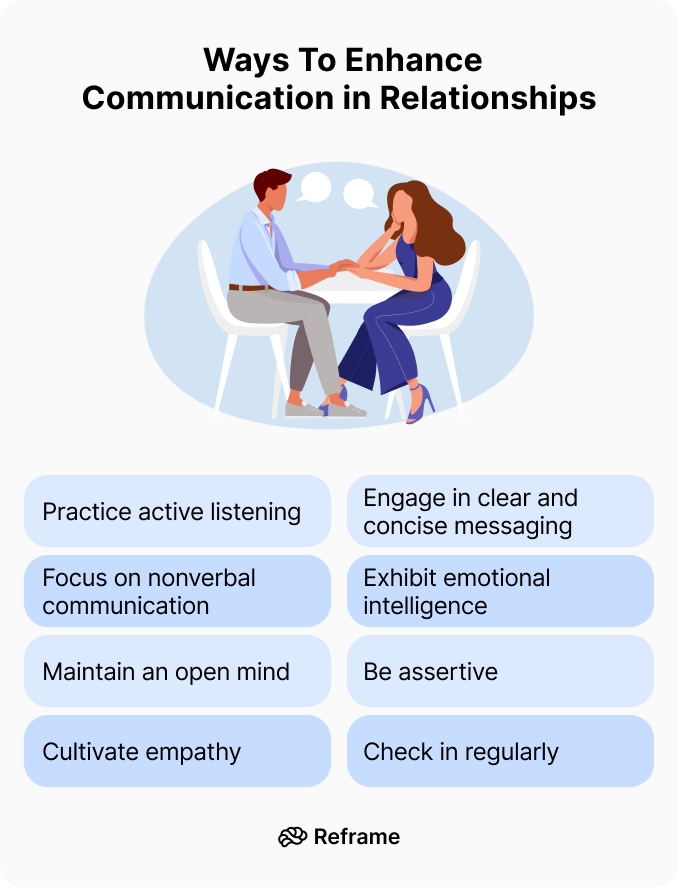Healthy relationships are built on a foundation of respect, trust, and open communication. When partners treat each other with kindness and consideration, they create a safe and nurturing environment where both individuals can thrive. However, when disrespectful language enters the picture, it can quickly erode the very fabric of the relationship. This article will explore the importance of respectful communication in relationships, examining the harmful effects of disrespect and highlighting strategies for fostering a more positive and supportive dynamic.
This article will delve into the detrimental impact of using disrespectful language towards your partner, emphasizing the need for mutual respect and understanding. We’ll discuss the significance of open and honest communication as a cornerstone of healthy relationships and explore constructive conflict resolution techniques to navigate disagreements effectively.
Respectful Communication in Relationships
Respectful communication is essential for building and maintaining strong relationships. It involves treating your partner with dignity, valuing their opinions, and expressing yourself in a considerate manner. When you communicate respectfully, you create an environment where both partners feel heard, understood, and appreciated.
One key aspect of respectful communication is active listening. This means paying full attention to what your partner is saying, both verbally and nonverbally. It involves making eye contact, nodding your head, and asking clarifying questions to ensure that you fully understand their message. Active listening demonstrates that you value your partner’s thoughts and feelings and are genuinely interested in what they have to say.
Another important element of respectful communication is using “I” statements instead of blaming or accusing language. For example, instead of saying “You always make me feel bad,” try saying “I feel hurt when you speak to me that way.” Using “I” statements helps to take ownership of your feelings and avoids putting your partner on the defensive.
Harmful Effects of Disrespectful Language
Using disrespectful language towards your girlfriend can have a profoundly negative impact on your relationship. It can erode trust, create resentment, and damage your emotional connection. When you constantly criticize, belittle, or insult your partner, you send the message that you don’t value them or their feelings.
Disrespectful language can also lead to a cycle of negativity. If you frequently use harsh words towards your girlfriend, she may respond in kind, creating a toxic environment where both partners feel hurt and angry. This can create a vicious cycle that is difficult to break. It’s important to remember that words have power, and using them carelessly can inflict lasting damage on your relationship.
Importance of Mutual Respect
Mutual respect is the bedrock of any healthy relationship. It means valuing your partner’s opinions, beliefs, and feelings, even if you don’t always agree with them. It involves treating each other with kindness, consideration, and empathy. When partners feel respected, they are more likely to be open and honest with each other, which strengthens the bond between them.
Mutual respect also means setting boundaries and respecting each other’s need for space and independence. It’s important to recognize that your partner is an individual with their own thoughts, feelings, and aspirations. While it’s natural to want to spend time together, it’s equally important to allow each other the freedom to pursue personal interests and hobbies.
Open and Honest Communication
Open and honest communication is essential for resolving conflicts and maintaining a healthy relationship. When you can communicate your needs and feelings openly and honestly with your partner, you create a space where both of you feel safe and supported. It’s important to be able to express your concerns without fear of judgment or retaliation.
Active listening plays a crucial role in open communication. By truly listening to what your partner has to say, you demonstrate that you value their perspective and are willing to understand their point of view. This can help to de-escalate conflicts and create a more collaborative environment.
Constructive Conflict Resolution
Disagreements are inevitable in any relationship. However, it’s how you handle these conflicts that determines the health of your bond. Constructive conflict resolution involves approaching disagreements with a willingness to listen, understand, and find solutions that work for both partners.
One effective strategy is to focus on the issue at hand rather than attacking each other personally. Avoid using blaming language or making generalizations. Instead, express your feelings and needs clearly and respectfully. For example, instead of saying “You always make me feel ignored,” try saying “I feel hurt when I don’t get a response to my messages.”
Conclusion
Respectful communication is the cornerstone of any healthy relationship. By treating each other with kindness, consideration, and empathy, you create a foundation of trust and understanding. While disagreements are inevitable, approaching them constructively can strengthen your bond and help you navigate challenges together. Remember that words have power, so choose them carefully and strive to communicate in a way that fosters love, respect, and growth within your relationship.



